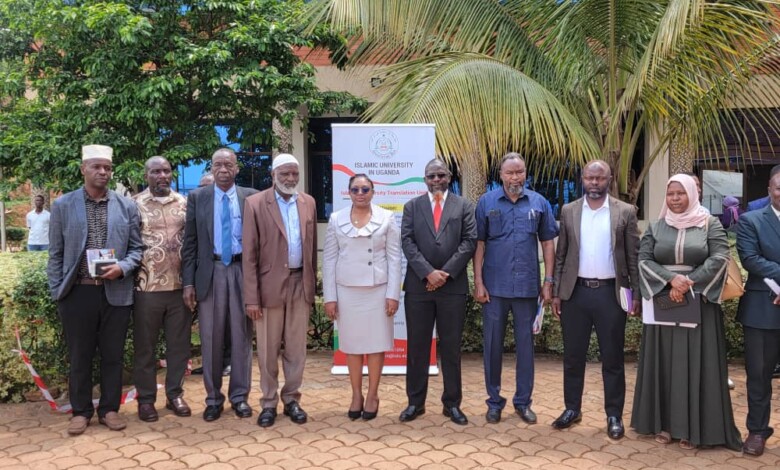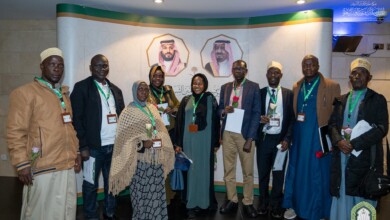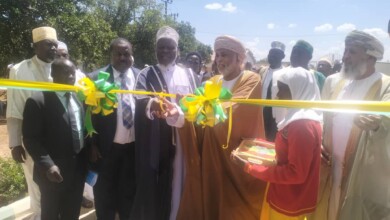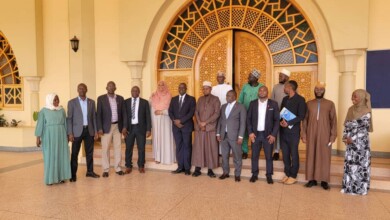IUIU, judiciary unite to champion language inclusion in Uganda

By Nalule Sarah
In a country where words can mean the difference between freedom and misunderstanding, the Islamic University in Uganda (IUIU) has taken a step toward ensuring that every voice is heard and understood.
The Translation and Interpretation Unit at IUIU Kampala campus, an initiative aimed at making language a bridge rather than a barrier is backed by the Judiciary of Uganda. The program seeks to strengthen access to justice, promote cultural understanding, and advance inclusive national development.
Speaking to the media on behalf of the Acting Principal Judge, Justice Okuo Jane Kajuga, the Registrar of the High Court Prossy Katushabe described the launch as a milestone in advancing Uganda’s people-centered justice system.
“The language of the court is English, and the Constitution safeguards every person’s right to understand and be understood. Article 28(3)(b) provides that anyone charged with a criminal offence must be informed of the charges in a language they understand. Article 28(3)(f) further grants the right to an interpreter. That is the very foundation of justice,” Katushabe said.
She added that Uganda’s linguistic diversity of over 40 local languages alongside Kiswahili, Arabic, and English is both a blessing and a challenge.
“In our courts, the precision of translation can determine whether justice is delivered or denied. Translation must preserve truth and intent. When done faithfully, it becomes a pillar of justice, a safeguard of rights, and a voice for the voiceless,” she said.
She called on students to approach translation as a mission of service because this a big opportunity which can benefit majority of Ugandans.
“You are not just learning languages you are learning empathy. You are learning to connect worlds and to give meaning where words once divided.” She said.
Language as a bridge of hope and healing
The Director of IUIU Kampala Campus Ahmed Twaha Kasule said that the launch was more than an academic achievement – it was an act of healing for a society divided by language and misunderstanding.
“We are celebrating a vision of Uganda where language is not a barrier, but a bridge because here every citizen, regardless of the language they speak, can access justice, education, and opportunity,” he noted.
He added that the Translation and Interpretation Unit under the Centre for Languages, Translations and Interpretation was designed to promote social inclusion and cultural harmony.
“By bridging language and connecting cultures, we are strengthening democracy and unity. We are giving citizens the confidence to engage with institutions and participate meaningfully in governance,” he explained.
He expressed gratitude to the Judiciary for affirming the importance of language in the administration of justice, and to diplomatic missions, NGOs, and corporate partners for supporting the initiative.
The Director also revealed that the Centre is already teaching English, Arabic, and Kiswahili, and plans are underway to introduce French, German, Chinese, Turkish, and local languages such as Luganda and Runyakitara.
“Language is not just a skill. It is empowerment ad when we teach languages, we are not just translating words, we are translating dreams,” he said
The Director Education from Uganda Muslim Supreme Council (UMSC) Mohammod Katerega said that Language connects communities, institutions, and nations through health, law, and trade, clarity saves lives and builds trust.
“Translation plays a very big gap in covering the bridges and ensures that every citizen especially in rural or marginalized areas can access vital information,” he said.






